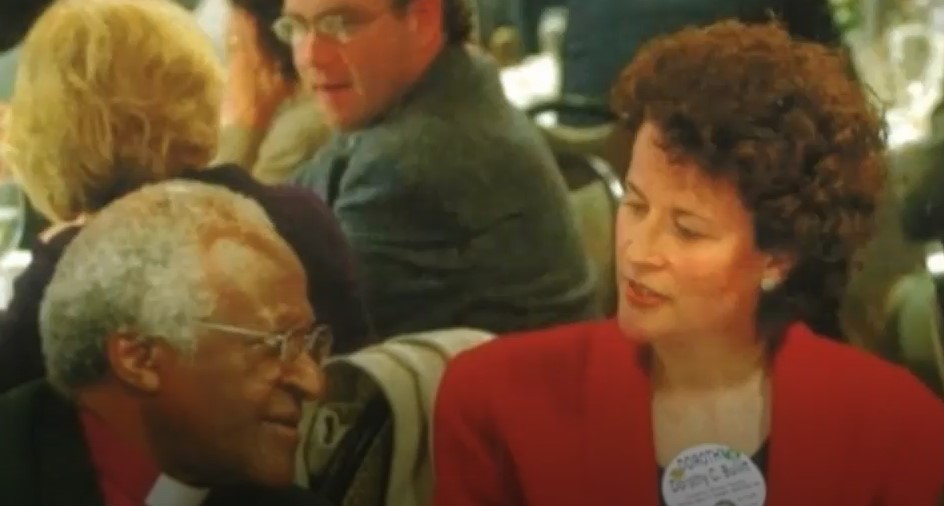
In recognition of National Women’s Month, Past Rotary president Dorothy Bullitt was invited to be the day’s featured speaker. She talked about a history of women in leadership from the perspective of her legendary pioneer family. President Beth introduced Dorothy as a leader from her roots as UW Husky, to head of Habitat for Humanity and many other boards and commissions to improve civic life in our community.
Dorothy described how women over four our generations in her family helped shape Seattle. Her great grandmother Harriet focused on civilizing the city from helping start Childrens’ hospital to Cornish school and many other worthy projects. Dorothy’s grandmother, Dorothy Simson Bullitt (DSB), founded King Broadcasting and helped create the Civic Education Committee and many other such organizations aimed at improving the lives of people in the community. Dorothy’s mother, Kay Bullitt, dedicated her life to civic leadership at numerous organizations promoting racial justice, championed open housing and founded an inter-racial day camp, as well as a leader in the arts, youth programs -- all driven by civic activism. Dorothy’s mother Harriet, named after her great grandmother, led several environmental programs and activities. Dorothy’s aunt, Patsy Collins, was similarly a leader in activism. Dorothy described how she and her mother joined Seattle Rotary, when women were admitted. Now, both women and men can exhibit their leadership style. “Effective leadership is authenticity and feeling comfortable in your own skin,” she said, “with leaders functioning in different ways to be effective.” She asked Rotarians to find their leadership strength. “Without authenticity leaders will falter,” she said. “Women have broken glass ceilings, as we are now seeing a full array of leadership -- Play fair, be competent, courteous and deliver when we promised.”
The day’s short program featured Lisa Richmond, a Senior Fellow with Architecture 2030 and former Executive Director of the American Institute of Architects Seattle for 15 years. Lisa helped lead the association’s national agenda on climate change mitigation and adaptation. She was a co-author of the AIA’s national climate plan and has supported development of climate action and education in AIA chapters across the US. Lisa decided to use her platform as Executive Director of the Seattle Chapter of the American Architect’s Association to advance ways to reduce carbon emissions, and strategies to achieve the Paris Climate conference goals. “The built environment is important to addressing climate change because buildings emit carbon emissions from heating/cooling buildings or operating carbon,” she said. “We are making progress by designing buildings better.” She concluded by saying “Every job is a climate job.”
